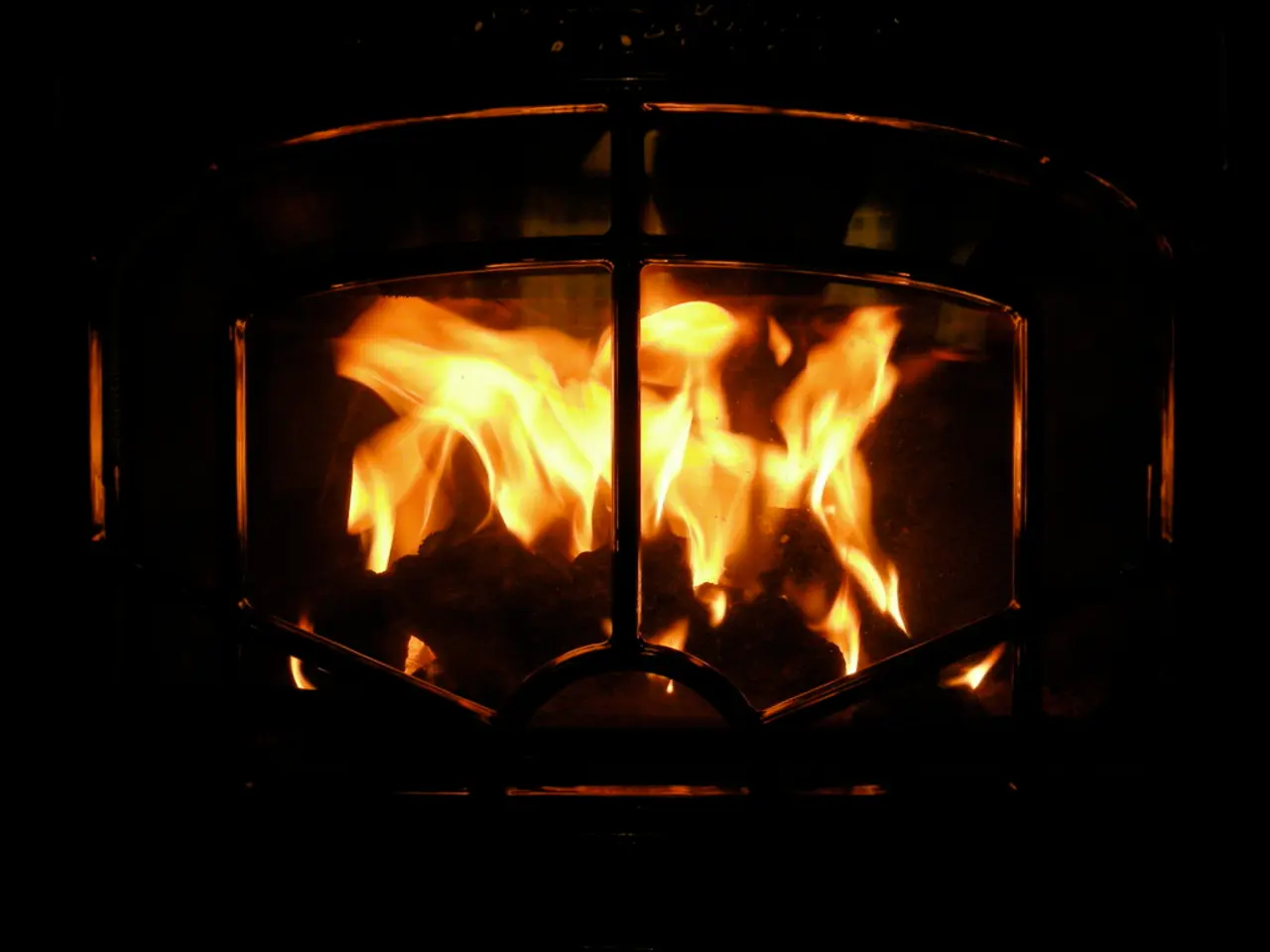Tragedy strikes in Graz as a 52-year-old resident perishes in a devastating house fire.
In the early hours of Tuesday morning, a house fire broke out in Graz, claiming the life of a 52-year-old man. The fire, which produced heavy smoke, occurred in the man's apartment, and firefighters were alerted by witnesses at around 00:15.
Upon arrival, firefighters found the man unresponsive in the apartment. Despite immediate resuscitation efforts by firefighters, paramedics, and a Red Cross doctor, only his death could be confirmed. The Graz Public Prosecutor's Office has ordered an autopsy to determine the exact cause of death, but it is believed that the man died of smoke inhalation in his sleep.
The fire investigations are ongoing to ascertain the extent of damage and the exact cause of the fire. Preliminary findings suggest that the stove burner was left on, and flammable material on the turned-on stove likely ignited, causing a smoldering fire. The nature of the flammable material is not specified.
This unfortunate incident serves as a grim reminder of the importance of kitchen safety. Common causes of house fires due to stove malfunctions include unattended cooking, appliance malfunctions, and placing flammable items too close to burners. Cooking fires often start when food is left unattended on the stove, or when towels, oven mitts, curtains, or food packaging accidentally catch fire near hot burners. Appliance malfunctions, such as faulty stove components or overloaded electrical outlets, can also cause fires.
To prevent such tragedies, preventive methods focus primarily on vigilant kitchen safety practices. These include never leaving food unattended while frying, grilling, or broiling; if you must leave, turn off the stove or oven. Using timers to remind you when cooking tasks are ongoing is also advisable. Keeping all flammable materials away from the stove, including oven mitts, wooden utensils, paper towels, and curtains, is crucial. Turning pot handles inward to prevent accidental spills or knocking over pots that could cause fires is also recommended.
Avoid cooking when drowsy, medicated, or intoxicated, and ensure your stove and appliances are in good working order to prevent malfunctions. This includes avoiding overloaded or wet electrical outlets.
Regarding smoke inhalation prevention, smoke alarms are critical. They provide early warnings, allowing people to exit before smoke blocks escape routes. Installing and maintaining working smoke alarms can cut the risk of dying in a home fire in half. Having a clear escape plan once the alarm activates, keeping fire extinguishers nearby to quickly address small fires before they escalate, and closing oven doors during an oven fire and turning off heat to contain flames until help arrives are additional smoke inhalation safeguards.
In summary, the most common cause of stove-related fires is unattended cooking combined with flammable items near heat sources or appliance faults. Prevention centers on active supervision, removing flammable materials from the kitchen area, device maintenance, and working smoke alarms to protect against fire and smoke inhalation hazards. Let this tragic incident serve as a call to action for all of us to prioritise kitchen safety in our homes.
- The science of preventive measures in health-and-wellness and general news suggests that unattended cooking in kitchens, particularly when flammable items are near hot burners or appliances are malfunctioning, can lead to accidents such as house fires.
- In the realm of crime-and-justice and medical-conditions, this tragic incident in Graz highlights the dangers of smoke inhalation, underscoring the importance of fire safety measures like working smoke alarms, clear escape plans, and the immediate response of emergency services to minimize harm.
- Regarding general news, it was a house fire, caused by a stove malfunction, that unfortunately claimed a life in Graz, emphasizing the necessity of implementing health-and-wellness practices, such as vigilant kitchen safety, to avoid such accidents and focus on overall well-being.




